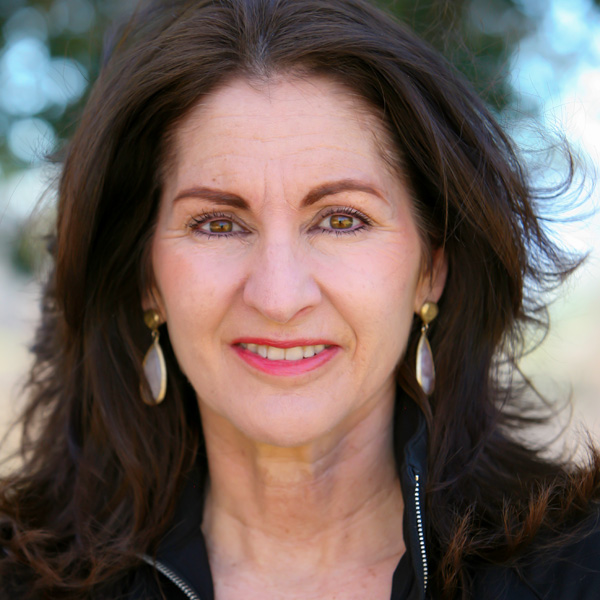Sometimes, families have a difficult time managing family conflict, life changes, or disagreements. Maybe one individual is struggling with a significant challenge. Perhaps there has been a divorce. Or maybe there are disagreements with adolescent or adult children. Agoura Christian Counseling can provide the support needed to navigate these challenges, offering strategies and guidance to help families communicate effectively, heal, and restore healthy relationships.
 Often, we’re so used to our own brand of dysfunction or conflict that we don’t stop and consider how different life could be if we addressed some of these problem areas. Home should be a place of peace, understanding, and harmony. Conflict will be there, but as a family, you should be able to handle it with grace and honesty.
Often, we’re so used to our own brand of dysfunction or conflict that we don’t stop and consider how different life could be if we addressed some of these problem areas. Home should be a place of peace, understanding, and harmony. Conflict will be there, but as a family, you should be able to handle it with grace and honesty.
If you can’t walk in the door of your home without being troubled by an ongoing problem, maybe it’s time to talk to someone about it. Could family counseling help solve your relationship conflict or manage family issues you’re having? Keep reading to find out more about family counseling and consider whether it’s an option for you.
Do we need therapy for family conflict?
What are some common reasons people seek help for their family issues? There could be many reasons, but here are a few:
- Chronic mental or physical illness.
- Substance abuse or addiction.
- Separation, divorce, remarriage, or blending families.
- Grief or loss.
- Financial difficulties or stress, or job change or loss.
- Parenting a child with a disability, disorder, or disease.
When any of these issues are affecting an individual, they will necessarily overflow into the family dynamics as well. They’re a part of your story. When you wake up in the morning, you wake up to the story of your whole family, and it’s not always easy to know how to write your part of it well.
Maybe your family is experiencing more than one of these challenges at the same time. When your life has been disrupted, it’s tempting to just let time pass and hope everything will return to normal but being proactive can solve and prevent problems and conflict. 
Perhaps there is a concern about a child’s behavior, or the parents’ marriage is struggling, and it seems to be affecting the children. Maybe family members have drifted apart and want to figure out how to achieve a healthy closeness again. Sometimes adult siblings or children want to address issues that happened during their childhood that are still causing problems today.
Or it might be that you’re trying to achieve a healthy family dynamic but are struggling to relate to extended family. Family counseling can help you strengthen your nuclear family bond and set healthy boundaries with your extended family.
No matter the situation, Christian family counseling can help with boundaries, dysfunctional patterns, communication skills, and coping mechanisms, while addressing all relevant aspects of the family “system.”
Individual counseling is a valuable and highly effective form of psychotherapy, but sometimes taking the greater context (i.e., the family unit) into account can create even better outcomes.
If you grew up in a dysfunctional family, you might be at risk of unintentionally replicating harmful patterns with your spouse and/or children. Family therapy can help you identify unhealthy patterns and replace them with healthier ones before they become entrenched.
So, if you’re asking, “Should we think about therapy?” the answer might be yes, especially if:
- You’ve recently gone through a big life change.
- There has been heightened conflict in your family.
- There are behavioral problems in a child that may need to be addressed within the larger context of the family.
- You’re experiencing a communication breakdown.
- One or more family members are withdrawn, having trouble functioning, or having difficulty managing their emotions.
- A family member is recovering from substance abuse issues.
There are many other specific situations where family therapy might help; contact our office today to find out more about what type of counseling would be best for your situation.
What is a dysfunctional family?
 Much of the time, family therapy can prevent dysfunctional patterns from taking over, but if you’re asking yourself, “Are we dysfunctional?” then you are displaying the ability to ask yourself tough questions. One of the prerequisites for successful counseling is an openness to change and growth, so being able to ask that question is an indication that family counseling may benefit you.
Much of the time, family therapy can prevent dysfunctional patterns from taking over, but if you’re asking yourself, “Are we dysfunctional?” then you are displaying the ability to ask yourself tough questions. One of the prerequisites for successful counseling is an openness to change and growth, so being able to ask that question is an indication that family counseling may benefit you.
You might be seeking family therapy as an adult because of dysfunction in your family of origin, but it’s also possible you might be experiencing dysfunction now. Here are some indicators of dysfunction within a family unit, according to Brown University:
- The presence of parental addictions or compulsions.
- The use or threat of physical violence towards or around children.
- Children being used to meet parents’ needs or fill an emotional support role.
- Parents threatening to withdraw provision from the children, or failing to meet their needs for food, shelter, and emotional support.
- When parental authority is taken to extremes: “One or both parents exert a strong authoritarian control over the children. Often these families rigidly adhere to a particular belief (religious, political, financial, personal). Compliance with role expectations and with rules is expected without any flexibility.”
There are also more subtle examples of dysfunction, including:
- Children being pressured to take sides in parental conflict.
- Parental overprotectiveness or emotional distance.
- Rejection or preferential treatment.
Again, maybe these things aren’t present in your current family structure, but you experienced them growing up, or your child is experiencing them in a blended family situation. Therapy can help address children’s safety and wellbeing, adult recovery from childhood adverse experiences, and any unhealthy patterns that you’ve noticed in your home.
 If there is a family member who is being treated for addiction, a mental illness, a physical illness, or another individual struggle, it might be an option for them to receive individual counseling while the family also goes to family counseling.
If there is a family member who is being treated for addiction, a mental illness, a physical illness, or another individual struggle, it might be an option for them to receive individual counseling while the family also goes to family counseling.
According to the Mayo Clinic: “Family therapy can be useful in any family situation that causes stress, grief, anger or conflict. It can help you and your family members understand one another better and learn coping skills to bring you closer together.”
Resolving conflict and restoring relationships through family therapy
Christian counseling for family issues comes from a faith-based perspective when considering how to meet your needs as a family. You might feel alone and overwhelmed, but God has not abandoned you. There is hope for your family.
Some families choose to attend counseling as a proactive way to manage potential problems or weak spots. Going to a family counseling session can feel intimidating or stressful in the beginning, but you might breathe a sigh of relief when you find yourself in a calm, quiet setting, a space of compassion and understanding, set aside for you to address the issues that can get swept under the rug during the busyness of everyday life.
Counseling isn’t always easy, but it’s worth it.
Maybe you’re a parent of a teenager, and you find yourself on the other side of a closed door, remembering when your eager toddler used to follow you around everywhere, and wondering how you lost that bond. Your Christian counselor can help you peel back the layers, open a pathway for communication, or give you strategies to manage your situation.
Change takes awareness, effort, and courage. Many families choose, whether through conscious decisions or passive inaction, to remain entrenched in patterns that have been passed down through generations, but by walking into the Christian counseling office and having the courage to tell your story, you’re taking the first step towards changing generational patterns and creating a healthy and thriving family.
If you’re interested in Christian counseling for family issues, call our office today at [phone #], or browse our online directory of counselors. You can rest assured that your first session is risk-free, and that we will work with you to make sure your treatment goals are met and that you’re comfortable with your counselor and sessions. We offer both in-person and virtual sessions at Agoura Christian Counseling. Don’t wait – call today.
Resources:
https://www.goodtherapy.org/learn-about-therapy/issues/family-problems
https://positivepsychology.com/family-therapy/
https://www.brown.edu/campus-life/support/counseling-and-psychological-services/dysfunctional-family-relationships
https://www.mayoclinic.org/tests-procedures/family-therapy/about/pac-20385237
https://www.verywellfamily.com/when-do-i-need-family-counselor-1270709
“Mama/Daughter Bond”, Courtesy of Eye for Ebony, Unsplash.com, CC0 License; “Taking a Walk”, Courtesy of Amy Humphries, Unsplash.com, CC0 License; “Birds in Flight”, Courtesy of Gauravdeep Singh Bansal, Unsplash.com, CC0 License; “Blue Flowers”,m Courtesy of Sora Sagano, Unsplash.com, CC0 License
-
Shirley Kauffman: Author
As a Licensed Marriage and Family Therapist, I provide faith-based counseling for individuals, couples, and families facing a wide range of issues including anxiety, depression, marriage problems, divorce, and other family issues. With God’s help, I’...
-
Kate Motaung: Curator
Kate Motaung is the Senior Writer, Editor, and Content Manager for a multi-state company. She is the author of several books including Letters to Grief, 101 Prayers for Comfort in Difficult Times, and A Place to Land: A Story of Longing and Belonging...
DISCLAIMER: THIS ARTICLE DOES NOT PROVIDE MEDICAL ADVICE
Articles are intended for informational purposes only and do not constitute medical advice; the content is not intended to be a substitute for professional medical advice, diagnosis, or treatment. All opinions expressed by authors and quoted sources are their own and do not necessarily reflect the opinions of the editors, publishers or editorial boards of Stone Oak Christian Counseling. This website does not recommend or endorse any specific tests, physicians, products, procedures, opinions, or other information that may be mentioned on the Site. Reliance on any information provided by this website is solely at your own risk.






